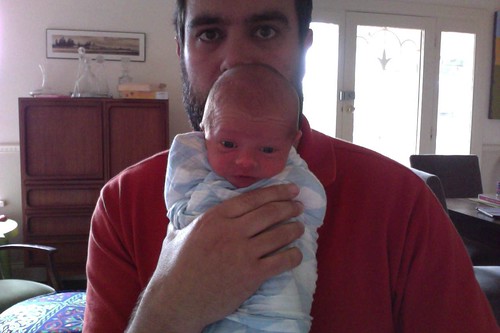Category: 1. Know students and how they learn, 3. Plan for and implement effective teaching and learning, 4. Create and maintain supportive and safe learning environments, 6. Engage in professional learning, 7. Engage professionally with colleagues, parents/ carers and the community, Musings, Professional Engagement, Professional Knowledge, Professional Practice
Tags: aitsl, cheating, classroom management, creative commons
Throughout my teaching career, the one constant is there are always students willing to tell me when someone else in the class has ‘cheated’. More often than not, being an Upper Primary teacher, it is not a case of cheating per se, but of another student using someone else’s idea. By the time they get to me, students know that cheating (copying others work and passing it off as their own is my definition) is wrong and socially it is unacceptable in the classroom – as the noble informants demonstrate.
There has been a lot of talk on Twitter in the last few days discussing an article by Patrick Larkin on this very topic – “Cheating is Cheating, but why does it happen?” and it got me thinking about my own views on the topic.

Putting in my 2c
Creative Commons
We teach students to attribute work correctly. I have a favourite sequence of lessons around copyright and creative commons that stresses the notion that ‘everything is a remix‘. Behind this is the notion that inspiration comes from everywhere, and it is important to acknowledge it when it comes from someone else. I have taken to correcting my ‘informants’ when told “Jimmy copied me” with the phrase “You mean, Jimmy was inspired by you?” It certainly flips their perspective on things. Instilling students with this attitude helps across the board. Students are more willing to help when they know that their good ideas aren’t being stolen, but developed, expanded and most importantly, attributed to them.
Innovation is a team sport
Dr Tony Wagner in his TED talk “Play, passion and purpose” advocates five reasons for a gap between the structure of schools and the culture of innovation. The number one reason is “innovation is a team sport.” (9:25 in the video) As teachers, we should be promoting “real, accountable teamwork”in our students. If we are looking to develop in our students deep understanding, then surely an enhanced process is more important than a ‘unique product’?
Judgement action gap
There is a phenomenon in Educational Psychology called the Moral Judgement Action Gap which basically says that sometimes people will do something that is wrong, regardless of the fact that they know it is wrong. It can be seen as a weakness of a traditional view of moral development (those interested in my paper discussing this can read it here: Moral development) and tells us that people, and in particular children, will do the wrong thing if there is a great enough motivation to abandon their moral structures. Without digressing into philosophical debate, I believe that the primary motivator for cheating is pressure to perform. Pressure to please the teacher. Pressure to achieve a grade. Pressure to impress a parent. Placing children under the level of stress that it takes for them to abandon their moral compass is certainly not helpful to them as learners, and certainly points towards weaknesses in our educational design. In particular…..
Assessment design
What are we assessing when we give a test? Is it whether a student has good memory? Whether they can apply knowlwedge to a new situation? Whether they can perform well on tests…? I propose that any situation where a child is able to cheat, is not a very good assessment (*most of the time). In an age of Project Based Learning, Inquiry cycles, passion projects and constructivism, (among other groovy, new age educational approaches) there seems to be little room for assessments that test knowledge. Can a traditional test adequately assess procedural knowledge? Well, yes I guess it can, but to a deep level? I don’t think it can. Assessment needs to be targeted at specific curriculum understandings, not designed to test memory. If you are delivering assessment experiences that rely on recall, not only can you inadequately address deep learning criteria, but you are also putting students (well primary school ones, anyway) under unnecessary stress.
If we want students to be running to the classroom door in the morning rather than running away from it in the afternoon, we need to engage, inspire and encourage them – a big part of doing this is not stressing them out. Heaven knows, there is standardised testing to do that for us.








Recent Comments